Here follows views of analysts, economists, energy expert, mayors of municipalities, chief minister, educator, litterateur, columnists and others regarding their hopes and expectations for the year 2019
Electrification of transport

Swarnim Wagle (Former Vice-chair, National Planning Commission)
I began 2018 with a high hope that an incoming government with a massive mandate for strength and stability would take Nepal on a new course. I no longer harbor that illusion. My hopes for 2019 lie on our young entrepreneurs who I expect to take steps to ramp up the adoption of electric transportation, as well as digitalization in commerce, two areas where we can leapfrog to the global frontier based on on-the-shelf technologies.
Last December, as Vice-Chair of NPC, we procured Nepal’s first electric vehicle funded by the government’s own internal resource. Since then, the President and the Minister for Energy have followed the suit. A plan to purchase 300 electric buses for the Kathmandu Valley has also just been announced.
Nepal will soon move from a state of electricity shortage to seasonal hydropower surplus. Major technological advances have prompted many countries to announce bans on the sale of petrol and diesel vehicles starting a decade or so in the future.
The long-term implications of Nepal’s transport fleet beginning to go all-electric will be transformative. First, by replacing import of fossil fuel with domestic energy, we reduce our external vulnerability. Second, combustion of fossil fuels involves pulling carbon from deep underground and adding it to the atmosphere which warms the planet and changes its climate. By acting fast, we can brand Nepal as a clean destination and a responsible actor on the global stage. Third, electric vehicles carry batteries that can be charged during off-peak hours, making better use of installed hydropower capacity, thus lowering the per-unit cost of electricity.
For individual owners, too, there are incentives. Taxes are ten times cheaper for electric vehicles. Electric vehicles are quiet, don’t require gear changes, and have instant torque, so they are less stressful to drive even in heavy traffic. It was for these reasons that just last week, exactly a year after NPC’s public purchase, I got rid of my private petrol car and swapped it for an electric one.
Where do challenges lie? We need better roads and long-distance charging facilities. We will need to set up systems for clean disposal of old batteries. Most crucially, we will need to reform our tax regime such that the Ministry of Finance weans off its addiction to sales taxes on fossil fuel vehicles. I am hopeful that in 2019 Nepal will substantially augment its electric vehicle fleet aligned with the expansion in off-peak electricity.
Three signs of hope
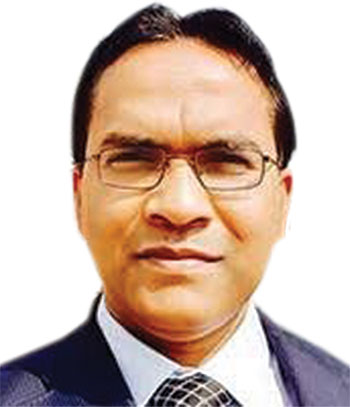
Biswo Poudel (Economist)
This year we are again on track to achieve the growth rate of six percent. The momentum of last two years is on its side, and so is the peace and stability prevalent in the country after the successful election yielded a stable government. Although the Doing Business Survey ranked Nepal below its last year’s ranking, the finance minister seems genuinely concerned about it. This has raised the hope that 2019 will be different. Indeed, the government is introducing measures that will significantly reduce the time to register the firms. The Minister of Industry is still an unpredictable, unrepentant revolutionary who seems to view all industrialists as the representatives of capitalist class against whom his class will eventually clash. But the signs are that he doesn’t have a free hand in industrial issues. Everything else being constant, we may see increased investment next year, at least domestically.
Second, despite the presence of many centrifugal forces in the country, the government is so far able to maintain the law and order in the country. The biggest protests this year were related to violence against women and young girls. These protests were legitimate expression of anger and unlikely to spin out of control. Introduction of federal system has calmed the population living in Kirat, Madhes and Tharu regions that threatened serious violence against the state until two years ago. The failure to devolve adequate authority to the nascent provincial governments may again threaten the current peaceful status. But at present, the government seems to be able to keep things under control.
Third, the government has shown commitment to implement a sweeping social security program that will eventually cover workers in the informal sector. Although specific menu offered by this program is yet to be made clear, this program will provide a real safety net for many people and decrease the risk of abrupt revolution if the country starts to grow. It will also contribute to improved labor relationship in the country.
Along with the normalized relationship with our two giant members, and arrival of increasing number of tourists, these three signs indicate that investment in hotels, light manufacturing industries, ICTs, and hydropower are likely to increase this year. There is unlikely to be any attempt to overthrow the prime minister this year. The government may face challenges from increasingly assertive civil society, but if it doesn’t respond to these protests disproportionately, this year is likely to be a better year for the government than the last year.
Manisha is happy and thriving, and says writing Healed was cath...

Save daughters
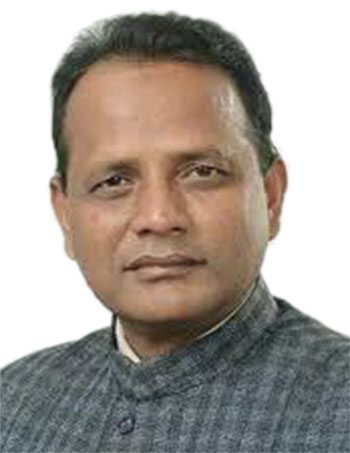
Lal Babu Raut (Chief Minister, Province 2)
I have plenty of work and projects to accomplish in 2019. However, among all the plans I have decided to prioritize ‘save daughter, educate daughter’ campaign the most. As a part of this campaign, we will make it mandatory for people living in all eight districts of my province to have education insurance for their newly born daughters.
This will be effective from January 15. We have made almost all preparations to carry out this campaign successfully. I believe this will help curb child marriage and dowry system, which are widely prevalent in Madhes. We have assured 50 percent reservation for females in province Police. Preparations are underway to provide reservation for women in government jobs as well.
We will soon commence a program of distributing cycles to the female students of community schools so that they don’t have to drop their education due to long distance. In 2019, we will start building 100 toilets in community schools. We have already started preparations for conducting free classes to girls appearing for various examinations of Public Service Commission.
Furthermore, we will do everything possible to make our province the ‘hub’ for technical education. We have already started holding discussions with the federal government for Sunkoshi-Kamala Diversion project, which will solve irrigation problem of farmers.
This year we will intensify afforestation program in all districts, which will play pivotal role in Chure conservation. I hope Province 2 will get new name in 2019 as the commission formed for this purpose is about complete its work.
Shakti breaks shackles

CK Lal (Political analyst, columnist)
An Islamic injunction holds that hopelessness is infidelity and despair amounts to sin. Keeping faith and maintaining hope, however, isn’t easy. It’s impossible to miss the impact of climate change upon human society. Global resources are under tremendous strain. Fear of future looms large as ideologies fall by the wayside, inequality increases and conflicts erupt. Rightwing resurgence has pushed the marginalized population everywhere into extreme anxiety.
An atmosphere of gloom and doom is unmistakable in Nepal as well where a dysfunctional government with two-thirds majority in the parliament has done precious little to kindle the fire of optimism. But as the myth of Pandora’s Box reveal, hope inevitably emerges in the end to keep the world going.
In myths of Hinduism, Shakti is the primal energy. She is the embodiment of faith, optimism and determination which then manifests itself as undefeatable power. A couple of Shaktis in Nepal have taken it upon themselves to make the world a little better.
Trained as a lawyer and a member of National Human Rights Commission of Nepal, Mohna Ansari from Nepalgunj is an indefatigable defender of dignity. Climbing the slippery ladder with grit and determination, Anupama Khunjeli has become the Chief Executive Officer of Mega Bank Nepal Ltd. Still in her early twenties, Shailee Chaudhary of Birgunj runs a business, studies for a management degree, presides over a non-profit organization Sanskriti and helps host TEDxBirgunj shows.
A teenager and an irrepressible transgender activist, Rukshana Newa is concerned about Newa heritage and is involved in protecting and promoting language and culture. Salma Khatun speaks seven languages, is a radio journalist, and has been elected as the Deputy Mayor of Pokhariya Municipality in Parsa District.
The list is representative and definitely not exhaustive. Vaidehis—women of ancient Videha such as Gargi, Maitreyi and Janaki and their modern avatars—have always played a huge role in keeping the Maithil civilization alive. Wonderful people of different genders are doing admirable work. They will not just inherit but build a better future with innovation, creativity and prudence—the quality of improvisatory wisdom.
Year of hope

Bishal Thapa (Energy expert and columnist)
About a year ago, Pushpa Kamal Dahal (Prachanda), Chairman of Nepal Communist Party (NCP) promised that Kathmandu would be rid of the dust and a new economic beginning would be launched within six months.
Almost a year later, this winter Kathmandu is experiencing its worst ever air pollution. The economy is showing signs of strain with concerns about foreign exchange reserves, liquidity and poor government expenditures.
KP Oli, the Prime Minister and other Chairman of the NCP, has promised so many things it is hard to even keep track anymore.
Nepali Congress, the largest opposition party, remains in total disarray. Oli and Prachanda at least make promises, though they are unable to keep them. Sher Bahadur Deuba, President of the Nepali Congress, isn’t even sure what promises to make.
Despite the failing politics, the absence of leadership and growing disillusionment, 2019 represents a year of great hope for Nepalis. The new constitution with federalism and decentralization offers immense potential. In local communities at the lowest levels of government, there is a burst of real energy. A sense of purpose with urgency, accountability and participation is electrifying to watch. There is a real palpable sense of hope, a sense of possibilities.
This can be our century, the century for Nepal.
The risks and challenges to our possibilities remain. Corruption remains the greatest risk. The deepening impunity, growing pervasiveness and the acceptability of corruption within the social-economic order is threatening to destroy what we have achieved. Where we go in 2019 will depend on how we, ordinary Nepalis, respond to the opportunities we have and challenges we face. The future is ours to lose if we choose to do so. Let’s choose wisely.
Change in education
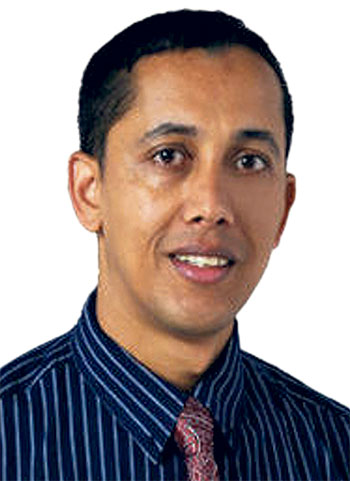
Shyam Sharma (Educator, columnist)
I’ve been writing about higher education for some time now, a time when there have been a lot of positive developments in this area. So I can envision steps forward in the coming year. Public universities are likely to build on the gradual implementation of the semester system across the nation, hopefully enhancing teaching/learning so the change in system is translated into change in culture and output of education for a socio-politically and economically transformed Nepal.
Private colleges are likely to start responding to downturns in recruitment by trying to make systemic changes/updates for attracting and retaining students on genuine educational terms. By the same token, let us hope that at the secondary level, community schools wake up to realities of why quality of education and public trust have been falling and find solutions to those causes (rather than by creating new ones like English-only medium of instruction). In fact, private schools could also be moving in the direction of at least respecting students’ right to their own languages and, through them, their culture and identities.
The public must begin to confront the causes behind Nepal’s brain drain, about which I have seen positive signs in reports, initiatives, policy formulation, and political discourse. There are also good indications that diaspora Nepali community, including its maturing professional communities, is starting to invest in Nepal’s development, becoming more visible and connecting better with institutions and communities at home.
In spite of sluggish change in systems/cultures of education, compared to the political revolutions of the past few decades and socioeconomic changes driven both by these internal forces and by globalization, Nepal’s education sector has promising potentials. I am hopeful that the field will realize more of that potential in 2019 than in recent years, if I’m reading the outgoing year’s signs fairly well.
Hope for better

Neelam Niharika Karki (Litterateur)
Art and literature is often the voice of voiceless. Artists and writers play their role as an anti-establishment force to bring the issue of marginalized population. With rapid globalization, we have global aspirations and problems. I wish to see realization of the dreams of weakest class of the society. I wish hope coming back to those eyes which lost their dreams. I wish to see more unity among people. I certainly hope our society moves forward in achieving dreams of all movements and struggles. I hope for better tomorrow.
New projects in line
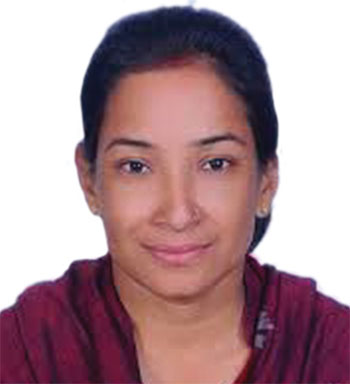
Renu Dahal (Mayor, Bharatpur Metropolitan City)
The first year of my office remained extremely challenging but equally fruitful for me. Last year, we devoted ourselves into transforming Bharatpur Metropolitan city into a clean, green and well-managed city. Year 2018 was more about learning and gaining experience for me. Living up to the expectations of people may have been difficult for us also because we have just entered into a new federal structure. But we managed to kick start some good projects and successfully completed three municipal assemblies.
I am very grateful to people for all the support. I am hopeful that they keep showering me their blessings in the coming year as well. There are plenty of upcoming projects. We have already prepared the Detailed Project Report (DPR) of much-awaited city hall and cricket stadium.
Similarly, the work for construction of 100 km long ring road has already started. Likewise, we will soon start the procedure of data collecting for making our metropolis a smart city. Apart from that, we will be as usual prioritizing education, health, transportation, agriculture and tourism sector. So far, we have formulated policies and plans. They will be implemented in 2019.
We have begun the work for preparing the DPR of waste management project with the assistance of Korean government. In order to create a clean and green city, parks will be constructed in each ward. First, we will be constructing three major parks in the metropolis area which I am sure will attract tourists. One of the parks will reflect the importance of the metropolitan city. It is not possible to complete all these projects in 2019, but we will make sure that they are completed on time.
Expect the change
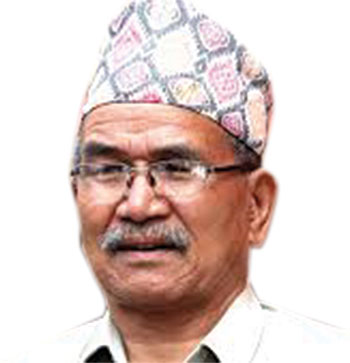
Chiribabu Maharjan (Mayor, Lalitpur Metropolitan City)
We worked a lot in 2018. While some projects have been over, some are underway. I had promised to make Lilitpur a handicraft city. If you visit this place now, you will realize where we have reached in this regard. This metropolis has been declared as one among 53rd city of art in this world. This is not a small achievement. We are getting forward with flyovers, smart lights installation and pipe fitting for sewage and power cable arrangements. We are coordinating with UNESCO for such tasks.
In 2019, we will speed up with our plans and projects. By the end of the year we will have many more works done. The city’s pollution issue will be addressed. For this, use of electronic vehicles is being promoted. We are working together with other cities to make our ambitious plans successful. In 2019, people will definitely get to see what we have done.
I have realized that people are not quite happy with our work so far. But results will be visible soon. After they see some good works done, they will be happy too. Lalitpur is very rich in traditional art and culture. Promoting and conserving and such assets will be our priority. Tourists have always been attracted to Lalitpur. We have plans to further boost tourism in 2019.
Give me justice
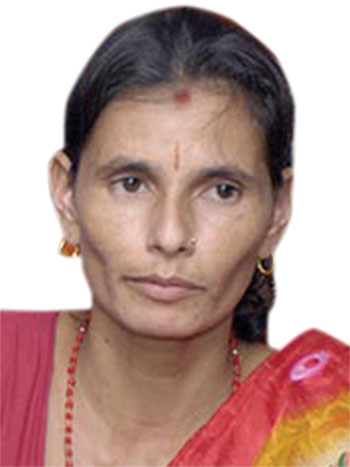
Durga Devi Panta (Mother of Nirmala Panta)
The tragedy that befell on me cannot be expressed in words. Nimala was very wise and helpful child. She would understand my problems and pains just by looking at my face. The police handled the case very negligently in the beginning and that made the investigation very challenging.
In Kathmandu I met the prime minister, the police chief and others. I do not like to say that the government is not trying to find the culprit but they have not been successful so far. My only demand is justice. The culprit should be indentified and punished. I would not file a case against SP Dilli Bista and others if they were not negligent. They did not seal the crime scene. They did not fulfill their duty. In 2019, I want to see the murderer and rapist of my daughter punished by the state.




































